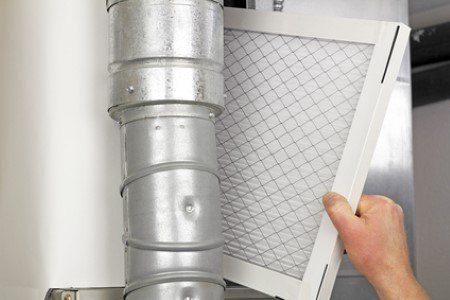Greenville Air Quality, Pollen, & Allergies

If you are not concerned about the quality of air you breathe then you should be. Though it is of more immediate concern to people with respiratory conditions such as asthma, that does not mean that it is not affecting you, it just means that the impact it is not as noticeable. The air is full of sometimes carcinogenic particulates that can cause serious health concerns such as heart attacks or even DNA mutations.
South Carolina air quality, and that of the Greenville area, is not the best it has been. Particulate contamination, ozone, and carbon monoxide are all near levels that can be dangerous to breathe. Though Greenville’s air quality received a passing grade from the American Lung Association, it barely slipped by with a C rating! Air contamination from dangerous pollutants has pushed Greenville’s rating to the tipping point for both ozone and particle pollution.
An increase of ozone in the air we breathe can cause a myriad of problems and is not a problem to be taken lightly. We are exposed to ozone through breathing ambient air that has been contaminated, and higher concentrations of ozone in South Carolina means a higher risk and rate of exposure. Ozone contamination isn’t reserved to outdoors, as 20% to 80% of outdoor levels can seep into your home as well. Without a proper South Carolina air cleaner, there’s a number of health effects that continuous exposure to ozone can cause:
- Decrease in lung function, cardiac effects.
- Asthma attacks
- Respiratory problems such as coughing and throat irritation
- Inflammation of airways.
Pollen is another serious problem for South Carolina inhabitants. Rising pollen counts are a product of numerous environmental factors. If weathers get shorter, the warmer weather means that trees will begin pollinating sooner, resulting in a much more lengthy allergy season than can add even more allergens in South Carolina’s air. If it has not been raining for some time, then a high-concentration of pollen is much more likely to find itself airborne. Dry and windy weather is how pollen is distributed most effectively, covering large areas, much to the chagrin of those in South Carolina with pollen allergies.
An increase in CO2 levels is also responsible for the high pollen count that has Greenville residents suffering. With a rise in CO2 emissions, pollen counts, as predicted by studies at Rutgers University, might increase by more than double over the next 30 years! Allergenic plants respond to an increase in CO2 by producing three to four times more pollen. High CO2 effectively super-charges the pollen production of these plants, creating misery for those with allergies and bringing about an increase in respiratory conditions like asthma.
The South Carolina allergy season is miserable enough as it is, but pollutants and pollen just exacerbate the issue. Allergic asthma, which is caused by airborne allergens such as pollen and mold, is already on the rise, so an increase in airborne contaminants should be of serious concern to Greenville county residents. This kind of allergy occurs when clean air is stopped from moving through airways. Allergens cause the airways to become swollen, inflamed, and more mucus is produced making breathing even more problematic. The narrowing of the airway in response to pollen and mold allergies spells a serious problem to asthmatics in South Carolina, no matter their level of physical fitness.
Hay fever, or allergic Rhinitis is another common South Carolina allergy that is being made increasingly severe by the continued decrease in air quality. Though sufferers of hay fever often emerge from a genetic disposition towards the condition, continued exposure to allergens, primarily when young, means that severe allergies can develop. Hay fever has been on the rise, especially in urban areas where pollution is at its worst. Symptoms might only be sneezing and a runny nose, but these can also lead to respiratory infections and ear infections.
With the high level of pollutants and allergens in South Carolina and Greenville county’s air, residents need to be concerned about the quality in their homes as well. Though we certainly need to improve South Carolina’s air quality, we luckily have more immediate control over the breathable air inside of our homes.
How We Can Improve Indoor Air Quality:
The easiest way to make the air in your South Carolina home safer to breath is by installing an air cleaner. You want more control over all the earlier-mentioned pollutants outside seeping into your home and an air cleaner can help keep them out. Dangerous carcinogenic particulates are caught by filters as they purify your indoor air, removing these harmful pollutants.
A Greenville air cleaner is the first step to making the air in your South Carolina home easier to breathe. An Air cleaner will pull the air from every room in your home and filter out these impurities that exacerbate conditions like asthma and hay fever. This clean air is then pumped back into your home and redistributed via your air conditioning and heating system.
The best choice that South Carolina homeowners can make to prevent the health issues that can develop due to the decrease in Greenville air quality is to improve the air they breathe in their own homes. We spend the majority of our time at home and should be able to breathe with confidence.
